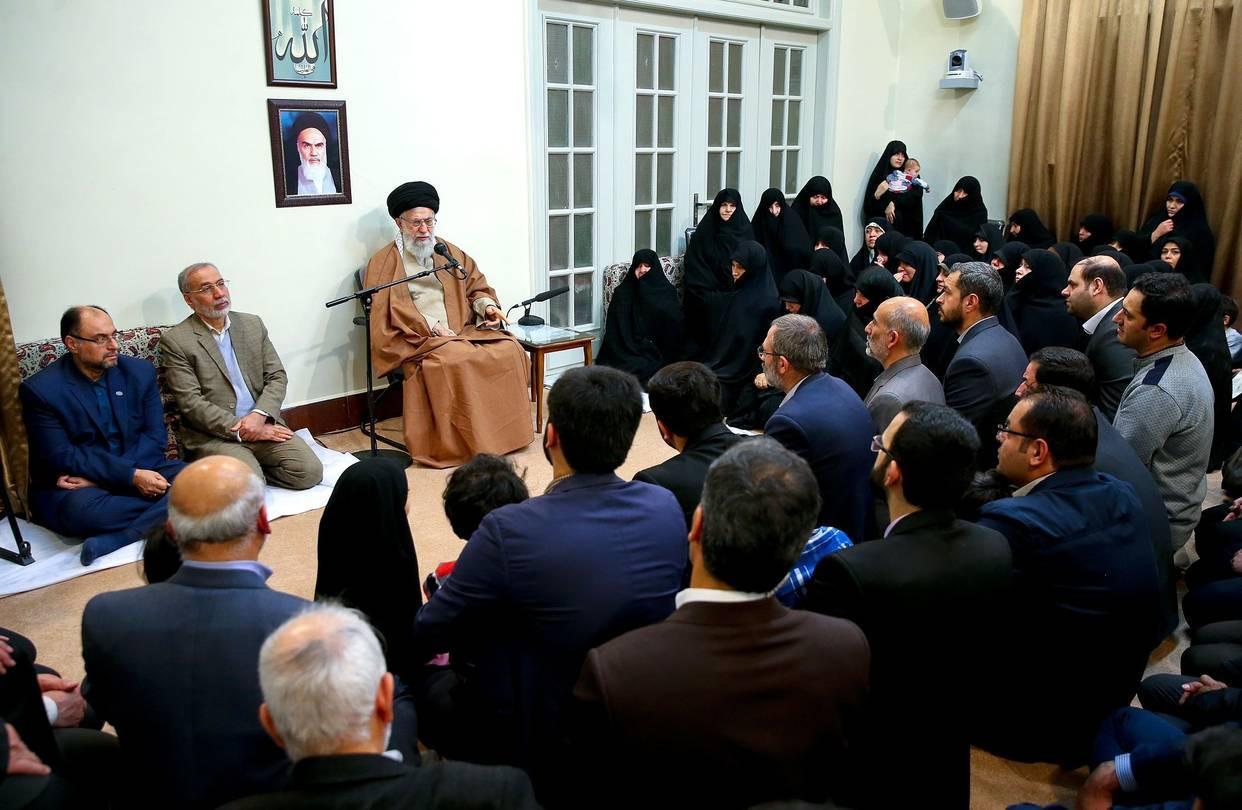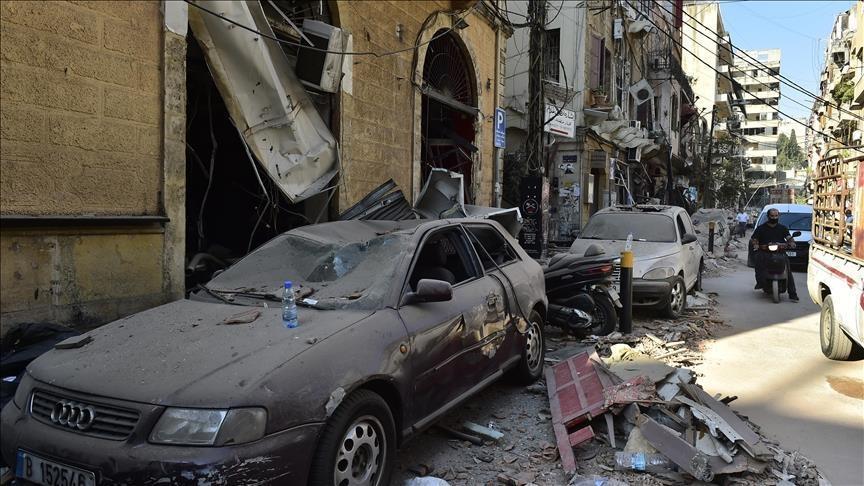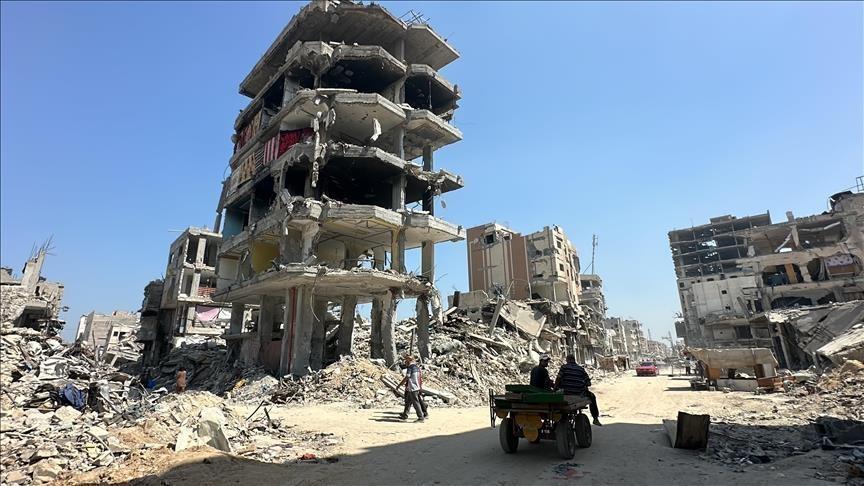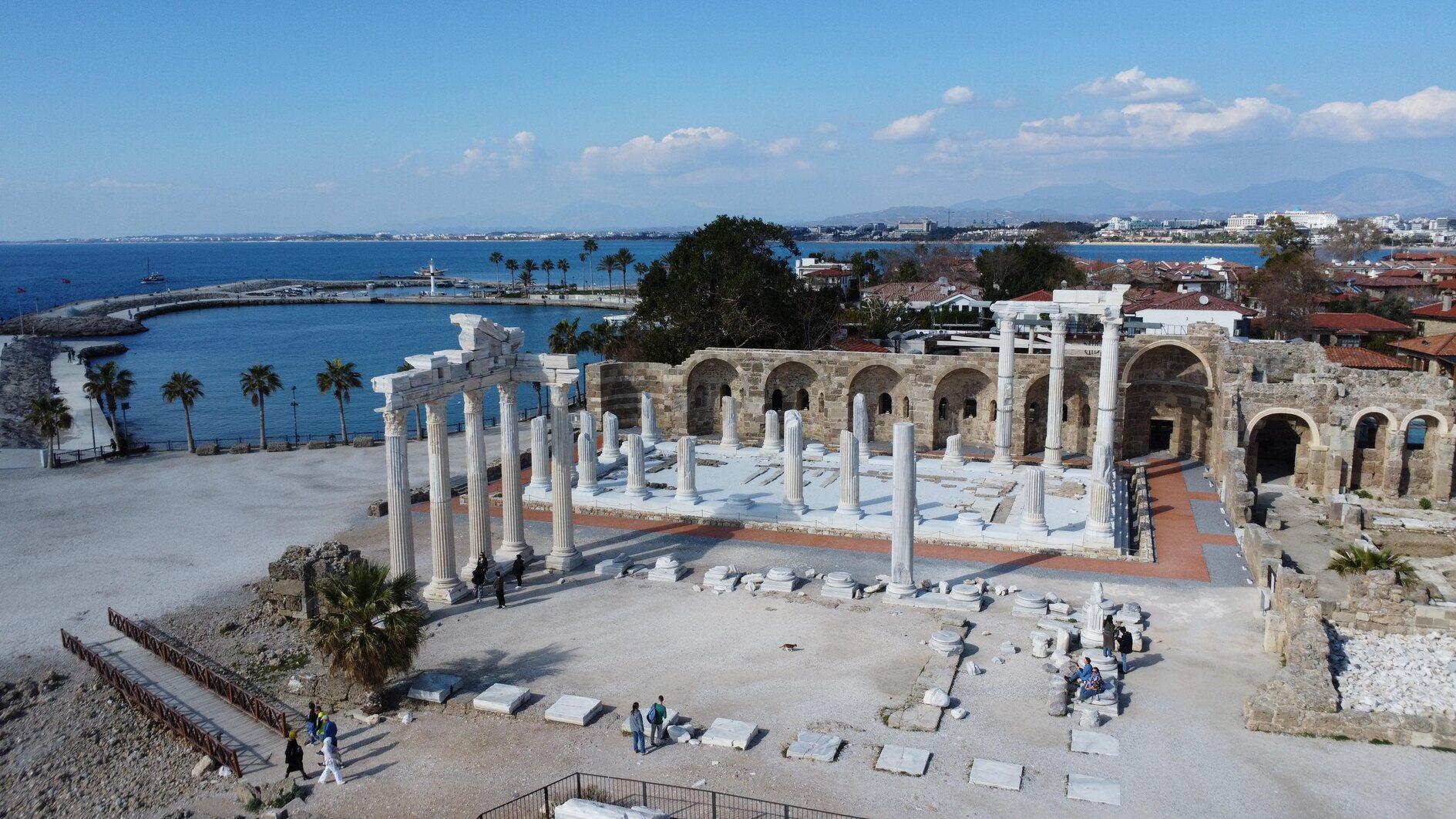Iran blames ‘enemies’ for protests in the country as Turkey calls for calm
TEHRAN/ ANKARA

Iran’s Supreme Leader on Jan. 2 accused “enemies” of the Islamic Republic of stirring unrest across the country as a crackdown intensified against anti-government demonstrations that began last week.
Turkey, meanwhile, expressed concern over the protests and urged for calm.
Turkey “wishes that the peace in the country will be ensured as soon as possible, the common sense will be dominated to prevent the escalation of the events, and that the provocative rhetoric and external interventions will be avoided,” the Foreign Ministry said on Jan. 2 in a written statement.
CHP: Protests in Iran are not a coincidence
Meanwhile, main opposition Republican People’s Party (CHP) Deputy Chair Öztürk Yılmaz said the latest demonstrations in Iran are “not a coincidence.”
In a written statement on Jan. 2, Yılmaz said Iran “had to deal with its own problems so its pressure on the Middle East would be restrained.”
If the Iranian government resorts to violence to suppress the protests then “foreign circles will try regime change,” he added.
“We don’t want Iran to become another Syria or Iraq,” Yılmaz said, adding that the Iranian people’s “legitimate demands” should be met.
Nine people were killed as fresh unrest hit Iran overnight, state television said on Jan. 2, while hundreds have been arrested as authorities crack down on the biggest anti-regime demonstrations in years.
An attack on a police station in the town of Qahderijan, in the central province of Isfahan, led to six protesters being killed, Iran’s state broadcaster reported.
At least three other towns near the cultural hub of Isfahan saw violence overnight, causing the deaths of a young member of the Revolutionary Guards, a policeman and a bystander.
The estimated death toll is now 21 from five days of unrest that represent the biggest challenge to the regime since mass demonstrations in 2009.
In his first reaction to the unrest, Ayatollah Ali Khamenei said: “In recent days, enemies of Iran used different tools including cash, weapons, politics and intelligence apparatus to create troubles for the Islamic Republic.”
Khamenei said on his website that he would address the nation about the recent events “when the time is right.”
He did not mention any enemies by name but Ali Shamkhani, secretary of the Supreme National Security Council, said the United States, Britain and Saudi Arabia were behind the recent riots in Iran.
“Saudis will receive Iran’s unexpected response and they know how serious it can be,” Shamkhani was quoted as saying by Tasnim news in an interview with Beirut-based Al Mayadeen TV.
Musa Ghazanfarabadi, head of Tehran’s Revolutionary Court, warned protesters on Jan. 2 that those arrested would face harsh punishment.
The semi-official ILNA news agency quoted Ali Asghar Naserbakht, the deputy governor of Tehran province, as saying that 200 people were arrested on Dec. 30 in Tehran, 150 people on Dec. 31 and about 100 people on Jan. 1.
Hundreds of others have been arrested in other cities, according to agency reports and social media.
Deputy Interior Minister Hossein Zolfaghari said 90 percent of the detainees were under 25-years-old, showing frustration among youths from the economic situation and lack of social freedoms.
U.S. President Donald Trump continued his harsh rhetoric on the Iranian regime on Jan. 2 and reiterated his support for the protests.
“The people of Iran are finally acting against the brutal and corrupt Iranian regime,” Trump tweeted, a day after calling for regime change in the Islamic republic.
“All of the money that President Obama so foolishly gave them went into terrorism and into their ‘pockets.’ The people have little food, big inflation and no human rights. The US is watching!”
The Russian Foreign Ministry was quoted by the RIA news agency as saying external interference was destabilizing the situation and calling it “unacceptable.”
Britain called on Iran to engage in meaningful debate about issues raised by protesters, Prime Minister Theresa May’s spokesman said on Jan. 2.
“We believe there should be meaningful debate about the legitimate and important issues that the protesters are raising, and we’re looking to the Iranian authorities to permit that,” the spokesman said.
The demonstrations, which broke out last week, were initially focused on economic hardships and alleged corruption but turned into political rallies.
Anger was soon directed at the clerical leadership that has been in power since the 1979 revolution, including Supreme Leader Khamenei, the ultimate authority in Iran’s system of dual clerical and republican rule.
Government spokesman Mohammad Baqer Nobakht said in a news conference that both protesters and the security forces should follow the law.
“People have the rights to protest but there is a difference between demonstration and riot...Even those who are confronting the rioters should act within the framework of law,” he said.
















